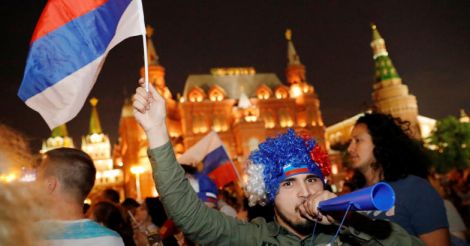One of the most interesting statements attributed to a usually prosaic Pope John Paul II is one regarding soccer. He reportedly said: 'Of all the unimportant subjects in the world, the most important is football." For a high pontiff who dribbles through world affairs and canonical tangle, football could be a morass of the hyper-material world. But the evangelists of the new economy beg to disagree.
They argue that any new infra additions rejuvenate the economy with 'multiple fund flush'. This is a hub-and-spoke model where a core activity (infra development) brings in funds, thereby activating allied activities. For every sporting activity, the major spends are categorised in two: construction and general investment.
Analyses put the total economic impact of the world cup at $30 billion by 2023. This, by any means and measure, is a massive amount. But, the actual and tangible 'activation benefit' (derived in number terms by factoring in a combination of things like returns per-dollar, jobs created etc.) are dismal, say a section of economists.
Major arguments
Experts say the money spent on sports facility upgrade could be used to attain long-term economic goals. They cite assessments over the years to say that the sectors like tourism, employment, and retailing do not show any short-term gains for the host country. For example, international accounting firm Grant Thorton predicted that the 2010 World Cup in South Africa would create $2.5 billion, 1.50 lakh jobs (approx) and 800 million (appox) in government taxes. But, the actual benefits were reportedly much lower.
Another argument against is that the government's spend should help the GDP, thereby boosting inclusive growth. They say creating sporting infrastructure is an 'exclusionary' economic activity as the specialised facilities are hard to build and expensive to run.
Developed vs developing
Another major argument comes into play here. It says developed countries reap better benefits by hosting a world cup or Olympics than developing countries as they need to just spruce up the existing facilities. FIFA (2011) required the host countries to have at least 12 stadiums across the country, the main one capable of accommodating 80,000 viewers. The subsidiary stadiums should hold at least 40,000. So, the US, Germany or France would benefit more by holding such a sporting extravaganza than India or Sri Lanka. In fact, Brazil reported higher inflation of 6.3% during the 2014 world cup.
The tourism myth
Tourist arrivals to Beijing and London dropped year-on-year in 2008 and 2012, both Olympic host years respectively. Tourism stake-holders say higher prices and weak government support for the sector actually drive away conventional international and domestic travellers. It takes a while for the industry to get back its lost tourists.
 Tourism stake-holders say higher prices and weak government support for the sector actually drive away conventional international and domestic travellers.
Tourism stake-holders say higher prices and weak government support for the sector actually drive away conventional international and domestic travellers.Where is the money?
FIFA generated $5 billion from the 2014 world cup. The International Olympic Committee gets 70% of the television rights of the games. So, even the most meticulous and organised civic bodies fail to get a cut of the profits. Hence the capital remains with a select few and actual benefit infusion is little.
However, an article in PIT Journal said the intangible benefits of a mega sporting event were three, namely, the novelty effect of new stadiums, the feel-good effect, and the change in international perception of a host country.
However, the economic impact and cost-benefit analyses are seldom dampeners on the spirit of the world cup or Olympics. So, the Papal observation apart, football remains the most important thing among important things for millions of people.


























 Experts say the money spent on sports facility upgrade could be used to attain long-term economic goals.
Experts say the money spent on sports facility upgrade could be used to attain long-term economic goals.